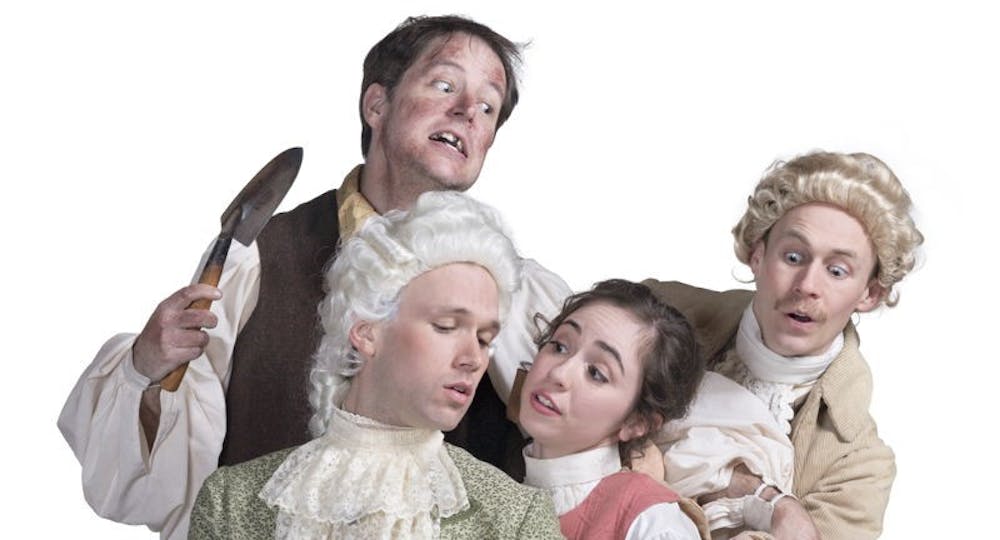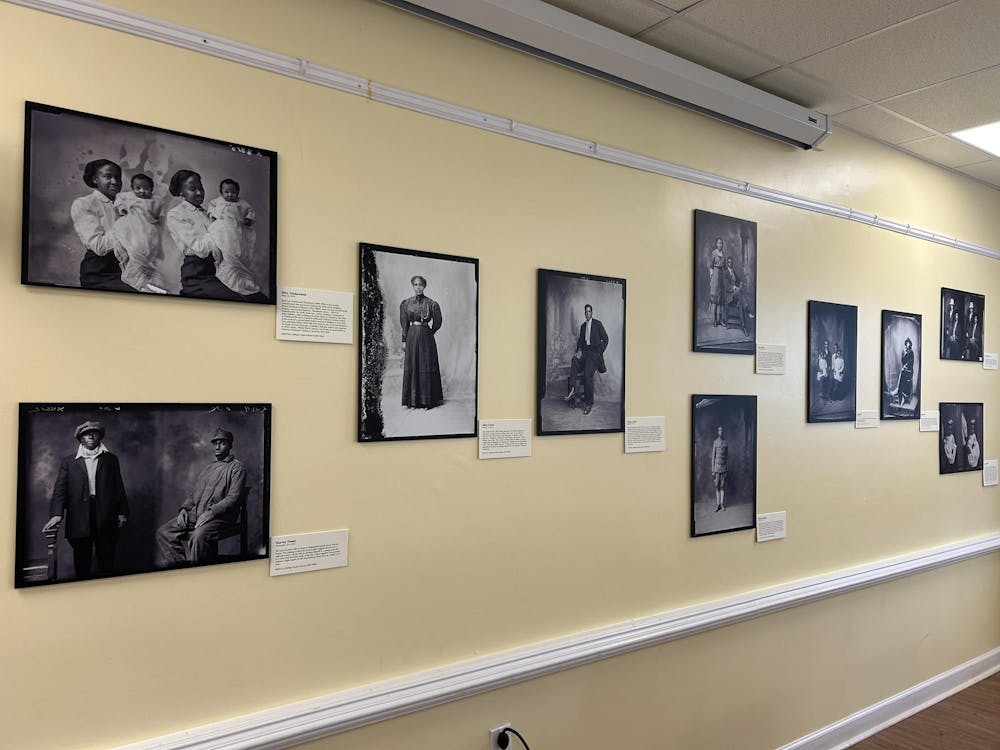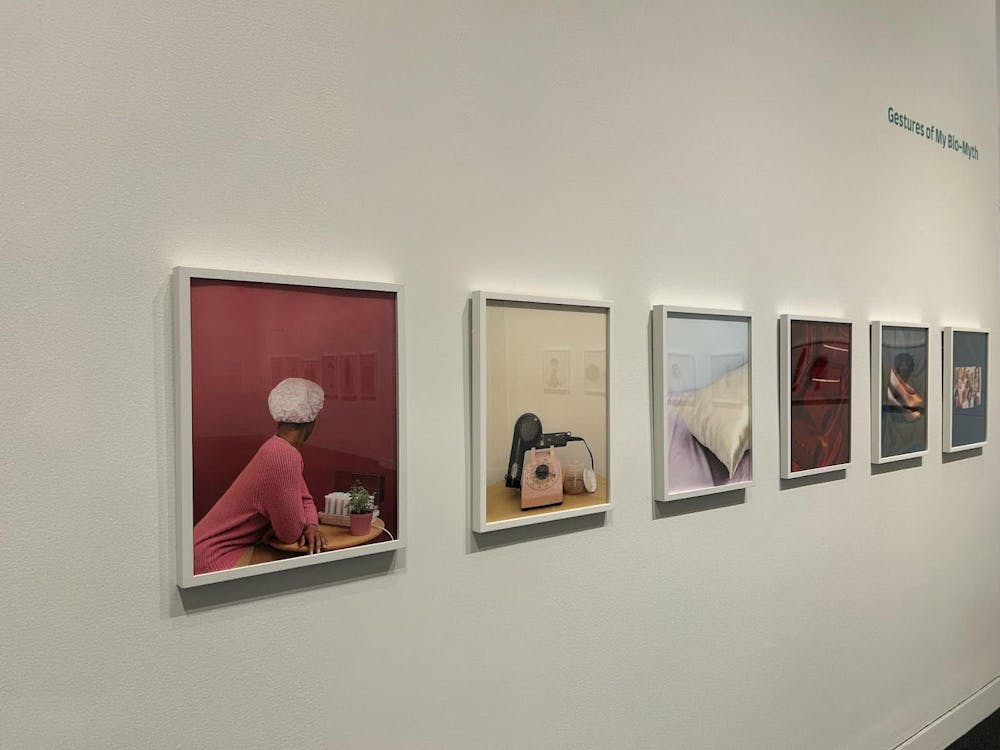In their penultimate performance of Pierre de Marivaux’s “Triumph of Love,” the seven-person cast presented an incredibly comical performance of unrequited love, false identities and raunchy jests. Even though Léonide (Jacqueline Ford) was the main character and her wit and dynamism stole the show at times, it is impossible to say that just one person made the play such an excellent performance.
Each actor fully embraced and assumed their respective characters. Their unquestionable allegiance to the performance was obvious in every scene, though only about half of the audience saw how far this dedication extended beyond the scripted play. As the first act drew to a close, Dimas (Roger Ainslie) entered onto the stage to declare, in character, intermission had begun and everyone was free to go. As people trickled out, however, Dimas remained. He went to a bag left onstage, reached for the coin purse within and extracted a coin. Dropping it into his shirt, he began wiggling and shaking around until he took off his shoe and extracted the coin from the sole. Throughout intermission he made various entrances and exits as he cleared the stage of the few leftover props, while simultaneously, and still in character, he interacted with the crowd.
Each person portrayed distinct characterizations, but they all contributed to the overall comedy of the play. Brother and sister Hermocrate (Joseph Bromfield) and Leontine’s (Mimi Robinson) squeals and gallops of delight provided a relatively innocent, buoyant humor, while Dimas and Harlequin (Les Rorick) offered a darker, more sexualized style of comedy. In both cases the actors succeeded, and the longer the performance progressed, the louder, more frequent and more genuine the audience’s responses became. These were no mere courtesy laughs, either, but rather spontaneous, wholehearted outbursts of amusement. Another small yet beneficial attribute of the show was the exits of characters — often there would be some subtle remark or gesture that was easy to miss if the viewer was not explicitly watching that character.
“Triumph of Love” was more than just actors owning the stage — it was saturated with talent and literal play, as everyone had so much fun with the performance. The set should be given well-deserved credit, as it provided the perfect environment for the show — beautiful renditions of marble columns and tiled floors could have been mistaken for real materials. The raised pool center stage provided a dynamic tool to the actors, adding variations in height, positioning and choreography of the characters’ movements.
The show made audience members cringe in pity and frustration, laugh at crude jokes and silly demeanors and generally appreciate all the work that went into making such a successful show. If audience members desired something to critique, perhaps it would be the cheesy ending of everything miraculously working out and two lovers running off together to live happily ever after. This really only added to the comedy, however, and made sense within the context of the play. Altogether, all the effort and dedication paid off on the stage.







